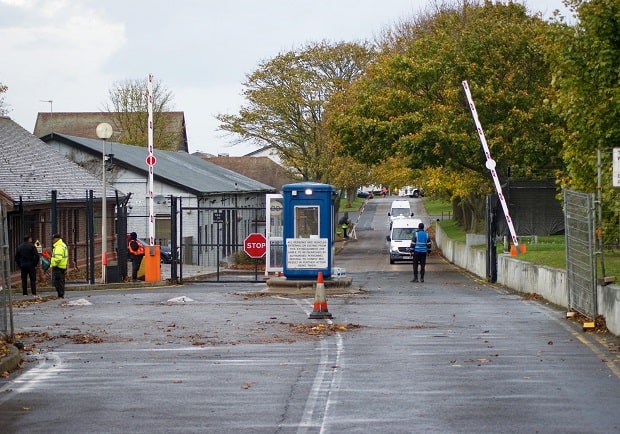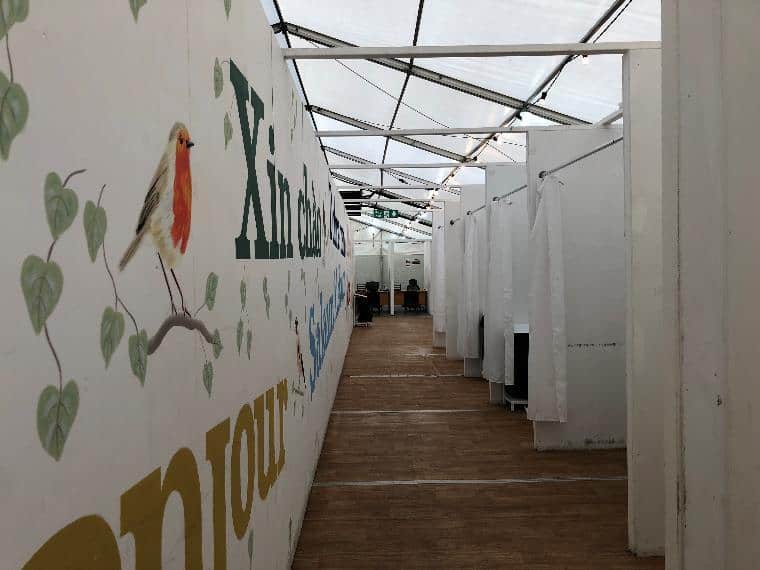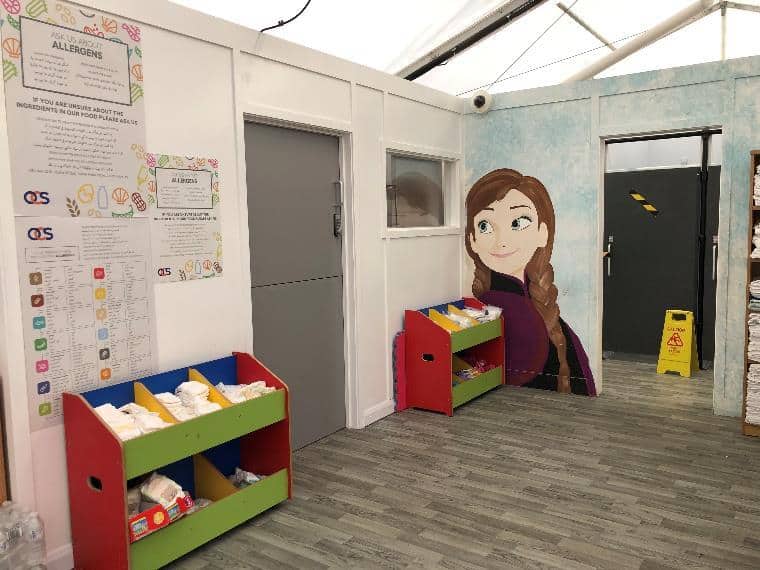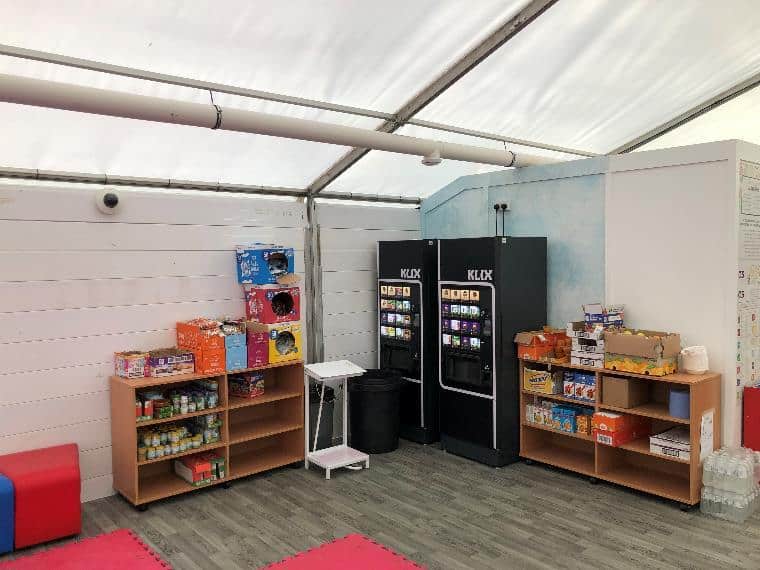
An unannounced, follow-up inspection of short-term holding facilities at Kent sites including Manston has raised concerns the centre would be unable to cope with increased numbers of people if there is a rise in small boat Channel crossings.
The comments are made in a report by HM Inspectorate of Prisons, published this week, following an inspection at the beginning of this year.
Increased numbers risks

Report author HM Chief Inspector of Prisons Charlie Taylor said: “While Manston was able to function reasonably when it was fairly empty during our inspection, I was not assured that if numbers increase, as they are expected to in the summer, the site will be able to cope much better than it did during the autumn.
“This could lead to vulnerable children and families remaining on the site for too long, the risk of infectious disease spreading and an increased possibility of disorder. It must be an absolute priority for the Home Office to make sure that there are enough on-site staff and onward accommodation, so that migrants pass through Manston without delay.”
At the time of the inspection, the number of people passing through the site rarely exceeded 100 a day.
Medical services transformed
Inspectors did note that medical services at Manston had been transformed since their previous visit last year.
The report notes: “Health services had improved considerably with the introduction of senior emergency medicine doctors who provided on-site treatment from 8am to 8pm and an on-call service out of hours, working alongside skilled paramedics.
“Two companies were contracted to deliver health services. Medevent Medical Services provided paramedic services and had introduced the senior emergency medicine doctors to the service in October 2022. IPRS Aeromed delivered paramedic services and there was a paramedic on board when any of the five Border Force patrol vessels was in use.”
They added that the burden on local health services had considerably reduced when the doctors had been introduced and effective clinical pathways were developing, including good links with maternity services.
Concerns

Concerns raised included a lack of leadership at Manston. With Border Force, Interforce, MTC, Mitie Care and Custody and GSA Security Solutions all providing services on site, inspectors say there were insufficient governance arrangements to make sure that work was coordinated.
Inspectors said there was also no real oversight of safeguarding processes, nor evidence that the most vulnerable were being consistently identified or provided with the right support.
Inspectors also raised concern about a lack of proper oversight of the use of force or violent incidents at the centre: inadequate data was available on when incidents had occurred, when force had been used, and whether it was justified by the circumstances.
Home Office data showed six incidents in the last six months, but information from Mitie and subsequent Home Office records suggested that this was incorrect.
Local records listed a considerable number of incidents, some of which had involved restraint techniques, handcuffs and, in at least one case, leg restraints.
Inspectors said Home Office could not supply accurate data on the number of violent incidents at Manston. They provided details of three incidents, but local records indicated many more, including fights, assaults, escapes, protests and general unrest.
Three container-type units were available to hold ‘non-compliant detainees’ separately from the general population at Manston. Previously people been held in cellular vehicles. Local records showed the vans had been used on at least 34 occasions to allow detainees to ‘calm down’ during the past six months.
Detention periods

The report also highlights that the recorded length of detention in all facilities was too long. In October 2022 the average was more than six days, and in recent months many children had been held beyond the 24-hour limit.
During the six months prior to the inspection, which was carried out between 30 January – 17 February, 17,562 detainees had been held in Manston, including 1,257 children. They were held for an average of 40 hours 43 minutes. There was limited hotel accommodation for family groups, and women and children were held for an average of 59 hours.
Inspectors said detainees had limited access to any form of communication with the outside world at all sites, including contacting their families after their journeys, and they were not made aware before leaving of where they were going and what would happen next.
Decent facilities

The report did find aspects of the site were reasonably good, with people held for short periods of time in new marquees that included decent facilities, particularly for families.
The family marquee was in good condition and provided baby food, children’s toys and changing facilities. Inspectors said accommodation marquees in use at the time of the inspection were clean and well heated and afforded an adequate environment for stays of up to 24 hours, although there were no beds there were soft floor covering and seating and mattresses and bedding were readily available.
The report adds: “Showers and toilets were in good condition, but there were only six toilets and two showers in each marquee, which would not have been enough if the accommodation had been full. There were good stocks of towels and clean clothes, toiletries and female sanitary products.

“Managers had considerably improved the food provided to detainees. Kitchens in the marquees were clean and well equipped. New storage ovens had been installed to keep meals fresh, so that detainees could be offered a hot meal whenever they arrived. The range of meal options included Halal, vegan and special meals for detainees with food allergies. Detainees were offered breakfast and lunch packs and could help themselves to fruit, drinks and snacks throughout the day.”
Last October and November the centre became overwhelmed with some 4,000 people. It is designed to hold between 1,000 and 1,500 people. People were facing significantly longer periods in the centre due to the high numbers making small boat crossings. Issues included reported cases of diphtheria, scabies and norovirus.
The Home Office says it has taken action to address some of the recommendations and looks forward to working with the Inspectorate on continuing that work.
It adds that staff are working to reduce detention times, improve facilities and provide specialist medical care.

